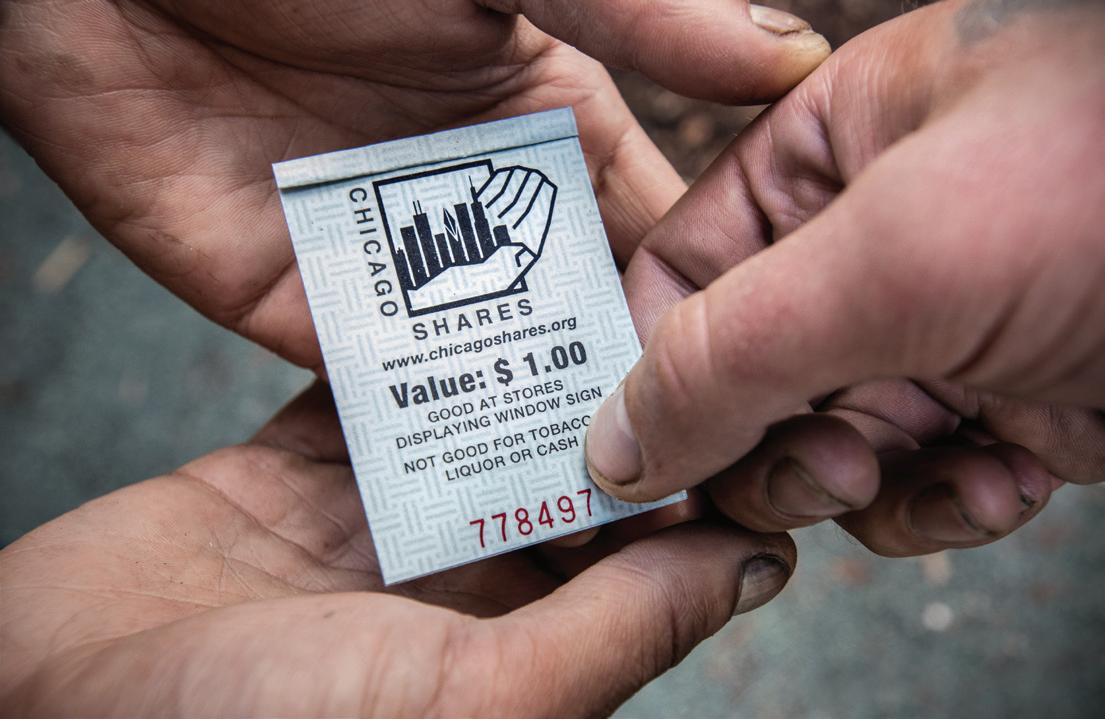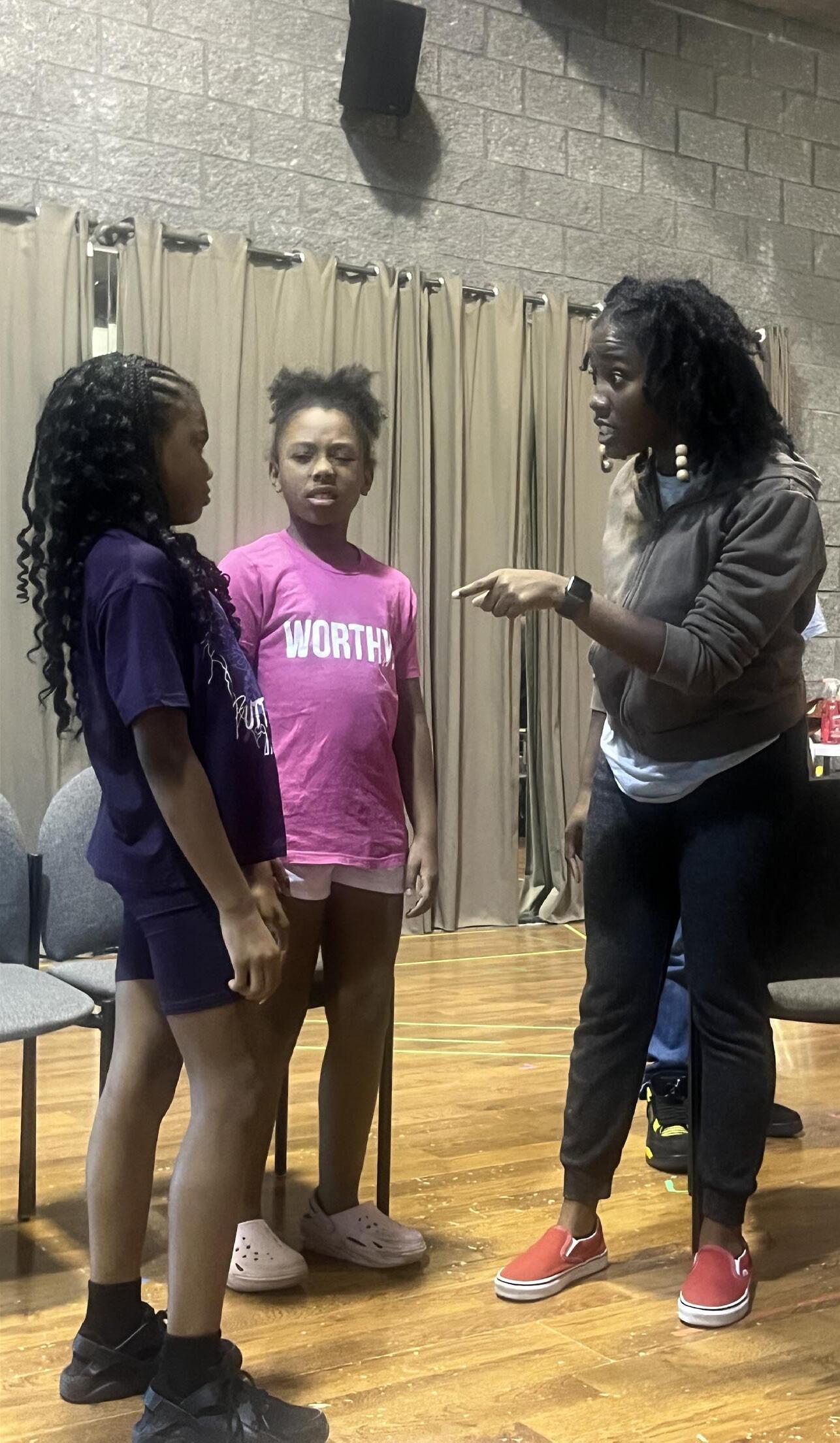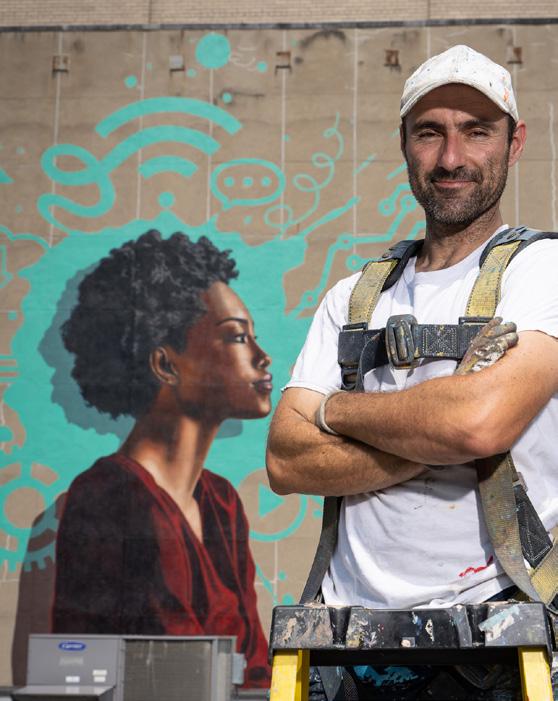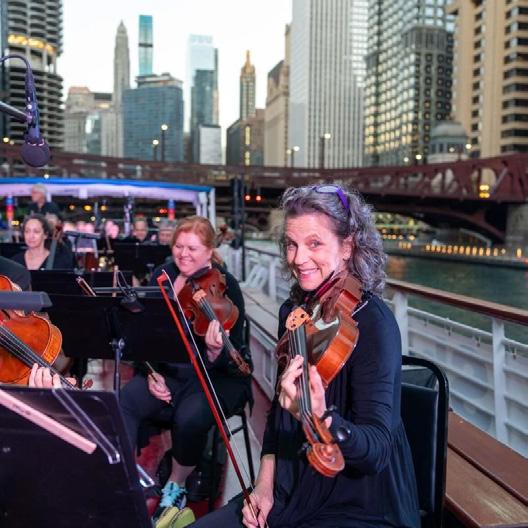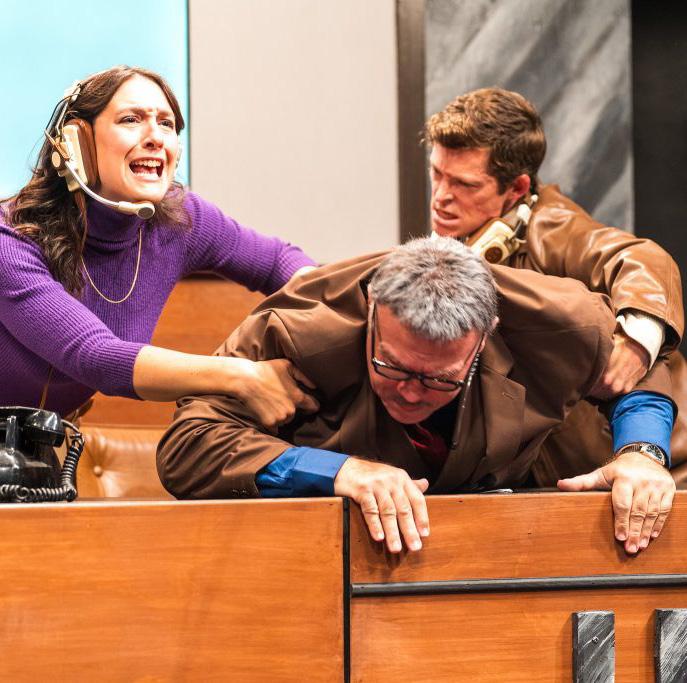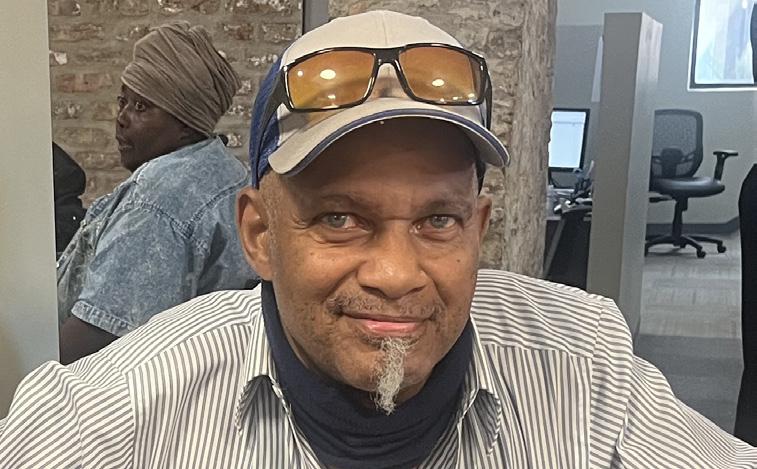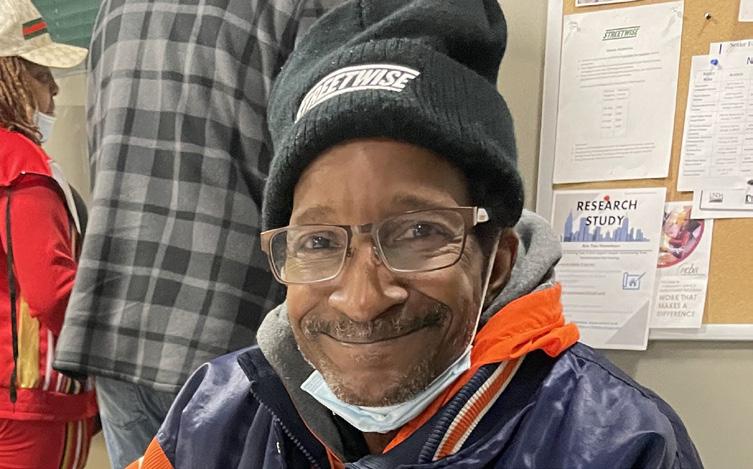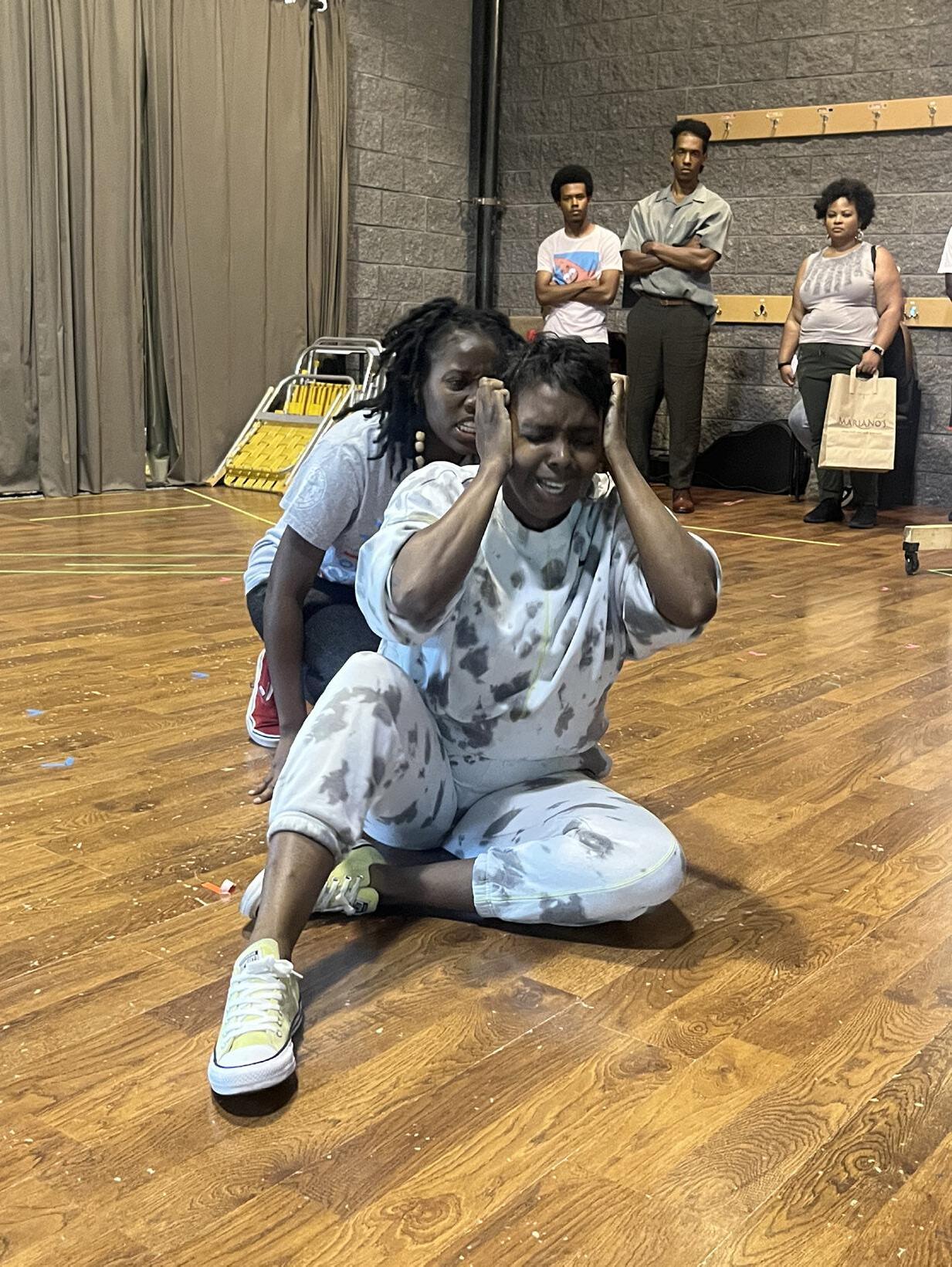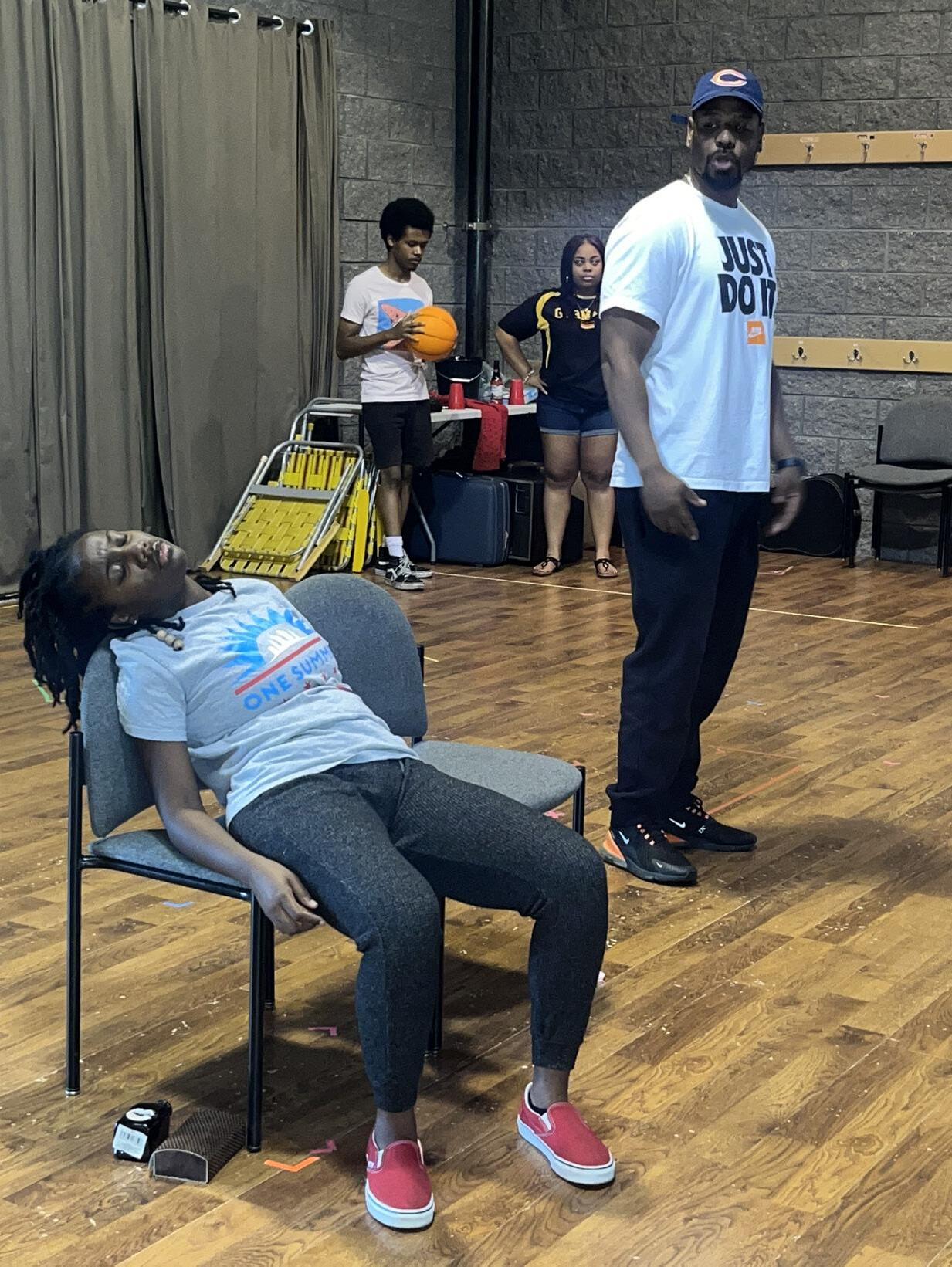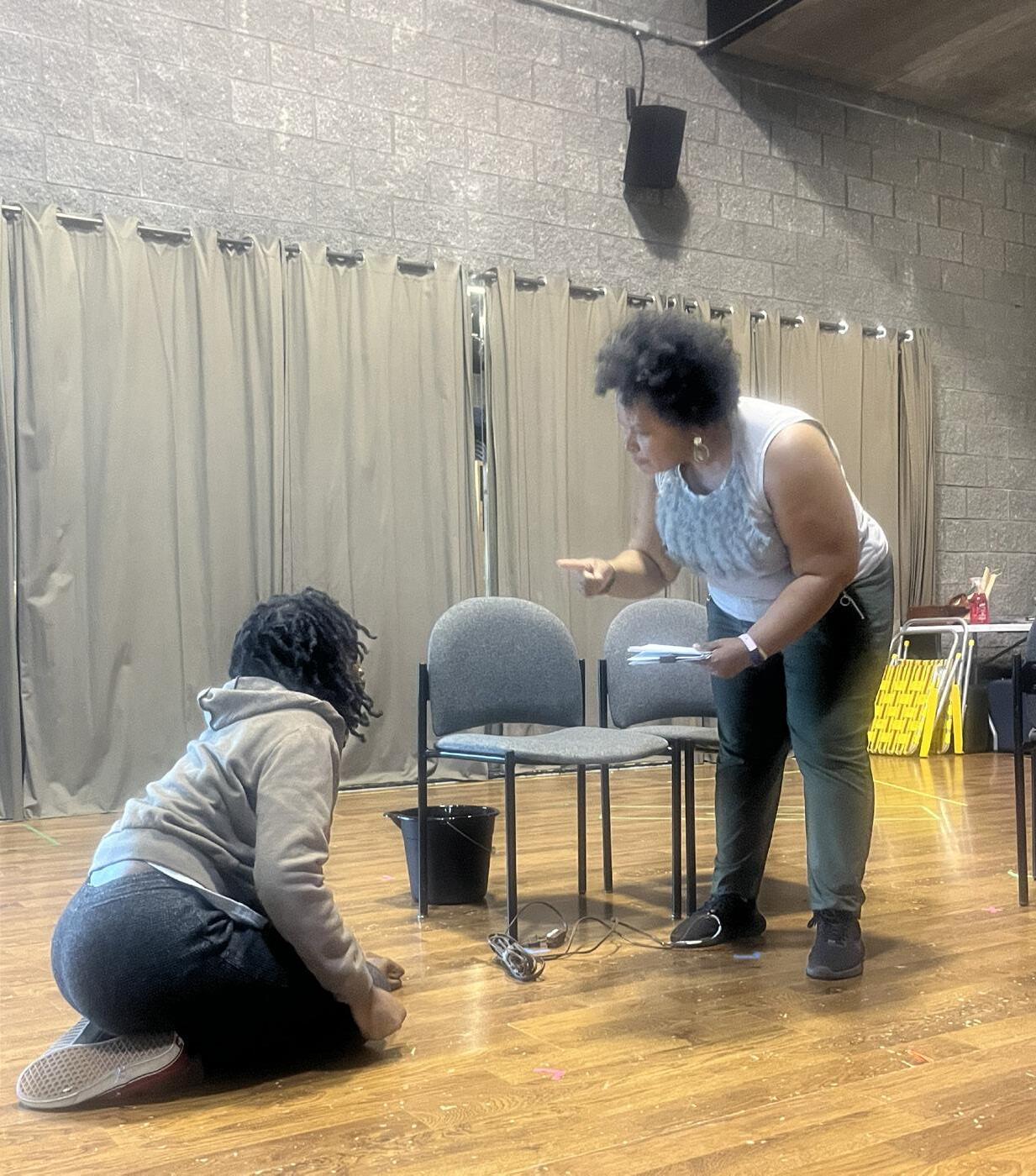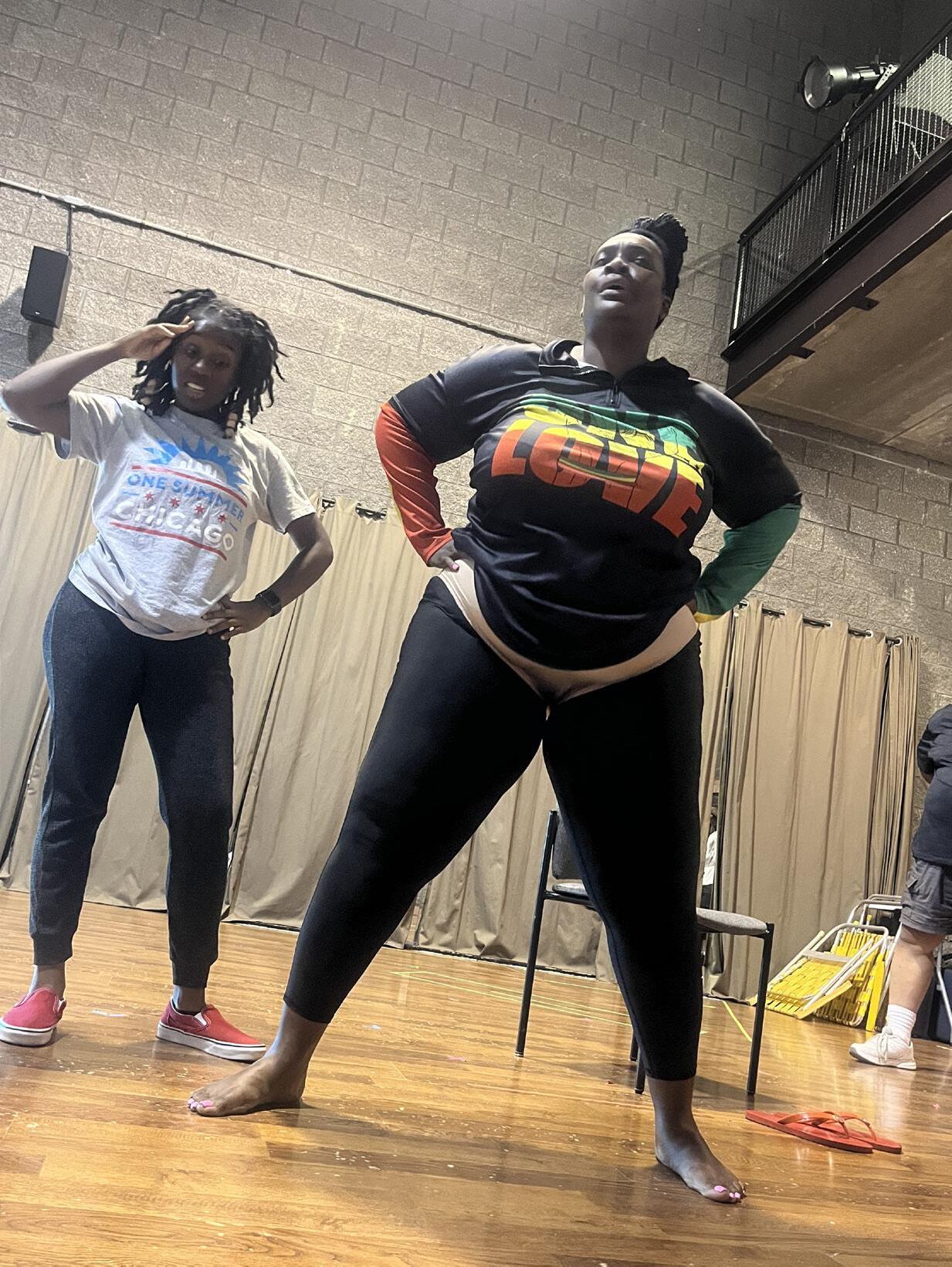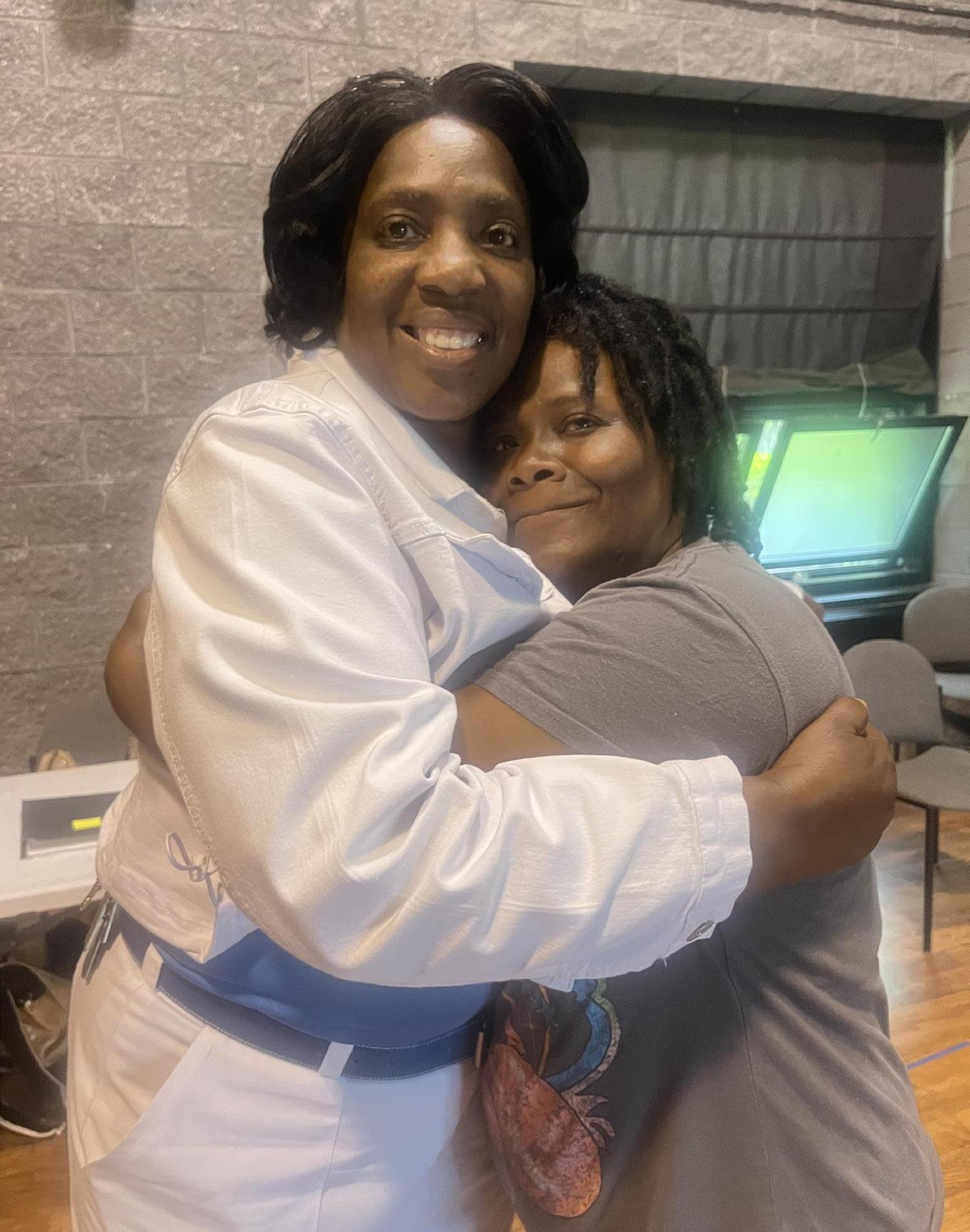Fighting Oppression!
‘The Normal Heart’ Award-winning Redtwist Theatre presents “The Normal Heart,” through September 22, Thursdays - Saturdays at 7:30 p.m. and Sundays at 3:30 p.m. Larry Kramer’s beautiful, searing play about the earliest days of the AIDS epidemic, based on his experience organizing Gay Men’s Health Crisis, has won Tony, Drama Desk and Olivier Awards. It tells the story of an advocacy group that struggled against government suppression and internal strife in the face of the disappearance of its community. This heart wrenching, humanist play, written more than 40 years ago about a small group of advocates calling for action from a government that insists that nothing is wrong, seems darkly familiar and more universal than ever. $35 at RedtwistTheatre.org with discounts available for seniors, students and industry professionals and pay-what-you-can for all Friday performances at Redtwist Theatre, 1044 W. Bryn Mawr Ave.
Briar Brews!
Beer in the Woods
As a fundraiser for the activities of the Friends of the Forest Preserves nature organization, LaBagh Woods (entrance on Cicero Ave. west of Foster Ave.) hosts an exclusive gathering on the afternoon of September 21. Craft breweries from across the county present ciders and beers for sampling, accompanied by guided nature walks and art workshops. The event runs from 2-5 p.m. with 1 p.m. admission for VIP guests. General 21+ admission is $55 and can be purchased at fotfp.org.
Baroque on a Boat!
Handel’s 'Water Music' on the Chicago River
The evening of September 18 sees the Music of the Baroque orchestra boarding a boat on the Chicago River for a water-borne performance of composer George Handel’s "Water Music." The orchestra will be accompanied by a choir group composed of students from various Chicago high schools. Admission is free, with multiple vantage points along the Riverwalk and at Merchandise Mart (222 W. Merchandise Mart Plaza). The concert runs from 7-8:30 p.m.
A Classic Remake!
‘Network’
View the stage adaptation of the Academy Award-winning film in which a network TV news anchorman is plunged into despair when his ratings drop and he is fired. He turns suicidal and threatens to kill himself live on air at an appointed time. Bizarrely, this announcement leads to a dramatic resurgence in popularity. Beale is reborn as “the mad prophet of the airwaves,” a man who channels the anger of the common man. A nihilistic satire on the direction that television, and specifically news coverage, was headed in the '70s. Playing at Windy City Playhouse, 3014 W. Irving Park Road. Tickets are $25 on Mondays, $45 Fridays through Sundays through September 29 at invictustheatreco.com
Leave the Light On!
‘Light Switch’
Henry is a gay, autistic man with a passion for 19th-century British novels. Unfortunately, his love for stormy romances does not translate well to dating in the 21st-century. This terrific play is filled with humor and compassion, weaving in and out of Henry's experiences. Will he discover a man who will find him "most tolerable"? Or at least one who can love “Wuthering Heights” almost as much as Henry does? Playing Sept 13 - 29, Fridays & Saturdays at 7:30 p.m., Sundays at 2 p.m. at Open Space Arts, 1411 W. Wilson Ave. $25 at openspacearts.org
Art in the Street!
19th Annual Lakeview East Festival of the Arts
The 2024 Lakeview East Festival of the Arts showcases more than 120 juried artists featuring world-class original paintings, sculpture, photography, furniture, jewelry and more. In addition to the diverse artists’ booths, the Festival also includes live music on multiple stages, a children’s play area, wine, beer and food booths, an interactive garden oasis and much more. 11 a.m. - 10 p.m. Saturday, Sept. 14, 11 a.m. - 7 p.m. Sunday, Sept. 15. $5 suggested donation, entrance at 3201 N. Broadway.
A Proud Community!
Edgewater Stories
On September 14 at 11 a.m., hear heartfelt, personal stories of the connections, memories, and experiences by individuals living in or passing through Edgewater. Through short narratives and poems, some stories by participants will reflect on the lakefront, the "L," and the Edgewater Branch Library. At the Edgewater Branch, 6000 N. Broadway, Betty A. Barclay Community Room. FREE.
Recapping the Paris Olympics
Allen: The U.S. came out on top in the recently ended Olympics, with 40 gold medals, 44 silver meals and 41 bronze medals (125 total). Coming in second place was China, with 40 gold, 27 silver and 24 bronze (91 total).
Japan came in third with 20 gold medals, 12 silver and 13 bronze (45 total).
The purpose of the Olympics is to promote a philosophy of life that aims to improve the world through sports. We have three values here: celebrate sports, promote fitness and showcase the nations’ best in sports.
America won on the worldwide stage because sports is a way of life here. Everything revolves around it, in my opinion.
John: Basketball is a sport I have passionately followed, especially in the semifinal and championship games. The USA was down by as much as 17 points and by 13 heading to the fourth quarter against Serbia in the semi-final. The USA made one heck of a rally, outscoring Serbia 32-15 in the fourth quarter. The U.S. went up for good on a Steph Curry 3-pointer with 2.24 left in the game.
In the championship game that followed, the U.S. still found a way to beat France
98-87. I am not saying France is not good, that the US should win every game by 40 points as they did against everybody else in 1992, but the competition is getting closer. The one thing about USA basketball: they should have been more focused than they were, but they focused in the nick of time.
Russell: Glad to be back.
While I was at home, I had plenty of time to watch the Olympics: women’s volleyball, women’s weightlifting. They are strong! It’s magic when the world comes together at the Olympics. What is it without controversy, like women’s boxing, though. Imane Khelif hit Angela Carini so hard she quit in 46 seconds.
Women’s basketball I watched a lot, more than the men’s. Women didn't dominate this year like in the past. They struggled big time. They should have had Caitlin Clark in there, they would
have done a lot better. But they still won the gold. Good job to Simone Biles: three gold medals and the silver. Glad to see U.S. women dominated. Simone Biles was injured; she still competed, won the gold.
William: I am just happy we got 125 medals. We did have to go up against some tough ones like France and a few other countries that were hard to beat. I think that’s the most medals we’ve had in my lifetime.
Allen: I would like to wrap up by saying Simone Biles has 11 medals under her belt and Michael Phelps is one of the most decorated Olympians of all time with 28 medals. I am looking for both of them to come back.
John: The one regret I have is, I don’t watch enough women’s volleyball. It’s pretty entertaining. And unlike the other sports, there is not a lot of controversy.
Russell: I missed the men’s boxing. Nobody got gold from the U.S. Boxing in the U.S. is going down. The U.S. men's basketball: Steph Curry saved them from a 17-point deficit. Like John said, amazing fourth quarter. They came back. Gold is gold.
William: One thing I like about the Olympics, the way it’s done in America, it promotes a lot of unity. In other countries, the government sponsors the Olympians, but here it’s civilians. I want to thank corporations for doing everything they can to have a good team.
Any comments, suggestions or topic ideas for the SportsWise team? Email StreetWise Editor Suzanne Hanney at suzannestreetwise@yahoo.com
Vendors (clockwise): A. Allen, Russell Adams, William Plowman, and John Hagan chat about the world of sports.
Limited run play 'beyond the door' celebrates hope, & the power to change
by Suzanne Hanney
Denise Jones wrote a book and now a stage play about her journey from lesbian sex worker in the 1970s and ’80s to subcontractor on the Obama Library – not to brag, but to give people hope.
“It doesn’t matter how low you’ve been. Once you can say it, you are in the beginning of healing, Jones said. “But first, you have to overcome your pride.”
Knowing you are not the only person who has been in the depths makes it easier to overcome shame and move on, said Tony-nominated Chicago actor Felicia Fields, artistic music director of the September 11-13 production of “Beyond the Door” at the Beverly Art Center. Jeff Award winner E. Faye Butler is director and Mary Q. Angels is project manager.
“Redemption is something I identify with: people turning their lives around. You don’t have to stay in the situation you’re in,” said Fields, whom Jones met at the Goodman Theatre when she was in James Baldwin’s “The Amen Corner” during the 2000-01 season.
“Denise has a larger-than-life personality,” Fields said. “She came to me because we both related to church. She has a mentality of going for the gold. ‘I am going to make it happen and you are not going to tell me otherwise.’ She’s a hustler, it’s a skill she took with her. When you get some street wisdom, you got what educated fools don’t have.”
Jones attributes her comeback to God and stressed that in a 2019 version of the play, when Fields played Jones’s grandmother. But as Fields talked to Jones during production, she realized that in playing it safe, “things were missing to make it better. The power of the struggle, the redemptive area was difficult to see.”
The script resonates with Inglish Washington, who plays the role of Denise in flashback. “I am excited to tell this story. I hope I can embody this character because I know it’s Denise’s life and so many others.’”
Although Washington lived with her dad, stepmom, five other sisters and two brothers, a close family member was in the streets. She also had friends at Chicago Vocational School (CVS), 2100 E. 87th St., who were homeless. Because a large number of its students were homeless or living with relatives, CVS won one of 18 dedicated Student in Temporary Living Situations (STLS) liaisons during Chicago Teacher Union negotiations in 2019; the position is federally mandated, but often held by personnel with other duties.
This is Washington’s fifth play this year, including “I Owe You” at Morgan Park Academy.
A familiar story for women
“I truly feel this is a story a lot of women have gone through, including myself,” said Cherita Murrell. Murrell plays Annie Mae from the time she became Denise’s 13-year-old mom through her transformation at church in her 30s.
Murrell was being groomed by a grown man whom her mother did not know was a sexual predator. “He ended up kidnapping me. Because of what he did to me, I held onto a lot of anger. I always felt I had to please a man. Cook for him, do everything or get smacked.
“Because of his appearance I did not like dark-skinned men at all. I started hating men, became confused about my sexuality.”
Murrell has since completed a bachelor’s degree at Columbia College in TV production, editing and writing. Although usually
Denise Jones in a 1981 arrest photo and today.
So many people experience this, not knowing how to start a conversation like this. People need to think, ‘What do I do around my child or express to them?’... The play could be guidance to the next parent -Cherita Murrell Actor, 'Annie Mae' I am excited to tell this story. I hope I can embody this character because I know it’s Denise’s life and so many others.’
-Inglish Washington Actor 'Denise'
behind the camera, she said that acting in a live production, where she must know her lines cold, is cathartic. “The moment I step onstage I am not myself.”
Murrell prepared for the role by talking to “old cats” in her family, going over the script – down to the street names – with her mother and grandmother, and retrieving old memories from her youth.
“So many people experience this, not knowing how to start a conversation like this. People need to think, ‘What do I do around my child or express to them?’” The play could be guidance to the next parent, she said.
Jones’ mother, for example, had been a happy and pretty pre-teen, even though she had been molested by her father. Annie Mae became pregnant with Denise by a long-time playmate, the boy next door who had become a neighborhood roué. It was 1960 and her “good girl” reputation was ruined.
Jones eloquently captured Annie Mae’s despair – and perhaps that of countless other women like herself – in her 2012 book, “Who Said It Couldn’t Be Done?”
“It created a black hole inside her, wide and deep. Thirteenyear-old Annie Mae abandoned her hopes and dreams of a joyful, happy future and climbed inside that hole, where she would dwell many years, lost and in great pain.”
Four more babies followed within seven years. Annie Mae began to frequent the streets for weeks on end, stopping at home to drop off food stamps – or not.
Jones was left to make sure her younger siblings were fed and clothed. At times she had to send them off to separate neighbors in Rockwell Gardens (Van Buren and Campbell) for eggs, butter and bread to concoct a meal. Overwhelmed with the responsibility of being both mother and father to them, she stopped going to school regularly.
Just the same, learning to aggregate as a child has stood Jones in good stead. She now has a $2.1 million contract for procuring materials – stone, rebar, screws – for the Obama Presidential Library.
Street life was a familiar way out
Trying to be both mother and father was unfamiliar to Annie Mae, who sank further and further into street life as a means of survival, Jones and Fields said. She turned their apartment into a hangout for her friends, with wild orgies on the weekends and women stopping by to make money before hitting “the stroll.” She also began pimping women and dressing like a man, to the point she earned the nickname, “Dirty Old Man,” or “Dirty O.”
Jones, meanwhile, had been molested by a young uncle and by her grandfather. Like Murrell, she had a violent reaction to seeing the initiation of a young virgin, which made her question her sexuality.
“I made up in my young mind that I would never have anything to do with men because they hurt women. In them, I saw no tenderness, no passion, care or concern; all I saw was doggish, brutal, violation and I wanted no part of it,” as Jones said in the book.
Jones wrote her book by collecting random memories on pieces of paper, which she kept in a bag. Better than any sociology text, her book (to which the play is faithful) makes the streets’ hold on people graphically comprehensible. Jones was a pre-teen when she picked up a heroin shipment for her mother – and sampled the product.
“Years of anger and hatred, fear and disappointment, abuse and neglect, molestation and betrayal simply evaporated from my consciousness. The fear of Grandfather’s lap and dark closets, male cousins and Dirty O’s friends, the pain of lonely nights and crying for my mommy; being hungry and scared, punching walls and throwing things all slowly and rhythmically dripped out of my 12-year-old body.”
More and more, Jones craved the excitement of her mother’s fast life. Sex and drugs were not the attraction – money was
– and she took a masculine view toward making it. She also adopted a man’s appearance, with short hair, three-piece denim suits and a strap-on penis.
“...it wasn’t just about the high. I was angry and nothing mattered to me,” as she said in the book. “I had to let out my frustration somehow, so I took it out on society. My little brother and sisters were at home sleeping on milk crates, with nothing to eat. Nobody seemed to care about that, including our mother. So I didn’t care either. I felt justified. Life wasn’t fair. That’s the message it sent me. I was providing for my family. They had a need; I took care of it.”
Finding creative hustles to survive
For more than a decade, Jones hustled in a variety of ways to make a buck. She waited outside the mailrooms of housing projects so she could see who received monthly checks and food stamps, then cashed the checks at the grocery store and traded the food stamps for money. (Ironically, pinpointing boxes that had just been filled by the mailman honed her ability to retain precise information.)
She went through the projects collecting public aid green cards, which she took to a medical center to trade for Talwin, a pain medicine similar to morphine, and blue Pyribenzamine, a sedating antihistamine. Taking “Ts and Blues” together was
known on the street as “speedballing” and produced a high similar to heroin and cocaine.
Jones also became a “booster.” She walked into fancy stores wearing long skirts, which covered the clothes she wore underneath on the way out.
The turning point came gradually. One evening, three men in a fancy new 1980 car picked up a drugged-out Denise. Jealous of her success with women, they talked of raping and then killing her and leaving her near the Brach’s Candy factory at Kinzie and Cicero. Denise heard them, escaped the car at a stoplight, and crashed through the 2-inch plate glass door of an apartment building. She was taken to Loretto and then Cook County Hospital, where she received 183 stitches.
But Denise had also given a Rockwell Gardens neighbor rides to True Holiness Deliverance Ministry Church and occasionally stayed for the service. One Sunday, she was stunned to find Annie Mae, who had joined the church, been embraced by it and married a saved man.
After a few more years of intermittent church, in 1986, Denise finally felt the kindness in the face of the church’s pastor and accepted God and the congregation. By this time, she had moved in with her mother, who began to reparent her and her siblings.
FAR LEFT: Inglish Washington as present-day Denise, narrator of the "Beyond the Door," is harangued by "DJ," her younger self, played by La'Tia Owens. Other cast members in the background include Jermaine (Patrick Edminson), Stanley (Micah Oliver) and understudy Vanessa Abron. LEFT: Commenting on DJ in her drugged out state is her brother, George, played by Tyrone Porties in this rehearsal scene from the play. In the background are Patrick Edminson as Jermaine and Tierra Maria as older Regina. ABOVE: DJ (La'Tia Owens) was struck with an electric cord after her mother Annie Mae, (portrayed by understudy Vanessa Abron) is angered that DJ called their grandmother to say they had no food in the house. RIGHT: DJ is worn out after helping her grandmother (Marie Taylor) put on her girdle to dress for a Friday night on the town. (Suzanne Hanney photos).
Denise found a job in a school lunchroom, where she made just $300 to $400 a week, but without the drug life’s toll on her health. She went to school for her GED; a nurse who was a member of the church read with her and encouraged her.
When it came time to test for the GED, “I heard a voice in my ear. Mark here. Mark here.’ Nobody restored my mind except God.” Having scored highest on the test, Denise was selected to be valedictorian. She won a scholarship, picked up little cleaning jobs and her life began to soar.
She bypassed her associate’s degree and went on to receive her bachelor’s and master’s degrees, unassisted. She worked for Aramark, planning budgets, hiring staff, making sure that 27 school buildings were safe, clean and comfortably warm or cool for students. For 15 years, she connected with everyone, building relationships, “determined to be better and have more.”
Change begins with hope
Eventually, Jones started her own janitorial business, where she now employs people who were similarly homeless in a high-profile building.
Her brother and sisters changed their lives as well – starting with their mindset, she said.
“My entire family all dropped out of school except one,” Jones said. “My brother was a drug dealer. Once my mother got out and turned her life around, it gave hope to us.” One of her siblings works for an accounting firm, another is a supervisor at the post office. All of them have their own homes.
“Here was a family of five who were struggling, former crackheads, formerly homeless, who came through.”
The play is about hope, Jones said, and it needs to be shared broadly with grassroots audiences, Fields said.
“At the end of the day, we don’t want you to think there’s anything you’ve done that is so bad you can’t have a renewing of your mind.”
"Beyond the Door" runs September 13-15 at the Beverly Arts Center, 2407 W. 111th St. Performances are at 7:30 p.m. Friday and Saturday and at 3 p.m. Sunday. Tickets are $43.50 at beyondthedoorplay.com
StreetWise Vendors respond to 'Beyond the door'
Lee A. Holmes and Paula Green Holmes, husband and wife StreetWise vendors, sat in on a rehearsal of “Beyond the Door” and gave their reactions to the play.
Paula
The play “made my day,” she told Denise as she asked for a hug (pictured above). “I felt good because I met someone who was in my lifestyle; her mom was like my mom and I had no one except an older brother who couldn’t do anything.”
“I really, really, really love the play,” she said later, outside the Beverly Arts Center. “At the very end, it melted me. I was able to meet [playwright Denise Jones]; she is such a sweetheart. The most important thing was, I was able to get my cry-out and my laugh-out with her. Whether you were never raped or had none of this going on in your life, I encourage you to see the play. People do not understand what rape does to females. Maybe if they see the play, they will understand. It hurts. It’s painful. It’s mindboggling. Some women don’t like men. Some women just want to be by themselves. Some women want to be gay. Some women don’t want to be involved with the world at all.”
lee
I liked it. I want to come see it when it’s finished. It took a lot of effort and time. The story is going to be great. It’s something that people need to see and take heed to some of the things that are going on in this world when it comes to women, when it comes to incest, rape. There’s a lot of things that can be done about it. [Denise’s mother] was strong enough to raise a child she didn’t want [who resulted] from rape.”
Community raises concerns about data center
by Suzanne Hanney
Alliance of the SouthEast (ASE) says it is not opposed to the proposed PsiQuantum Computing facility that will be located on the former site of US Steel South Works – but members would like both Gov. J.B. Pritzker and Mayor Brandon Johnson to meet with them regarding environmental impacts, community engagement and benefits.
Residents surrounding the quantum data center have questions about job creation, potential rent and property tax increases, Lake Shore Drive reconstruction, traffic, lakefront access, and toxic materials.
“With this investment, we don’t want our communities to be left behind. We built the steel backbone to Chicago, we want to be included in its future,” said long-time southeast side resident and ASE community organizer Sam Corona regarding the data center announced July 25. “We look forward to a working partnership for a successful development that supports our community, without displacement, ensures the next generation advances into a digital economy, and [that] the environment is not at stake for our future.”
One concern is that the data center’s cooling systems will release heated water into Lake Michigan and promote harmful algae growth and toxins that could disrupt aquatic life and make drinking water unsafe for human consumption.
Southeast Side resident Starr Jo. C. Flores-Quijano also called for a community benefits agreement that would ensure local employment, training, STEM programs, affordable housing, tax relief, and technology infrastructure.
Quantum computers use quantum bits (qubits), which allow for faster processing of complex data than conventional computers, according to World Business Chicago. Applications can be used in climate, healthcare, finance, energy, agriculture, transportation and communications.
Metro Chicago has a growing pipeline of quantum professionals: 11,838 related jobs last year, projected to grow 8% by 2028. This region ranks 3rd nationally for physicists and materials scientists.
The South Works mills of U.S. Steel employed 20,000 people in the 1940s at their peak, but 10,000 people in 1979 and fewer than 700 when they closed in 1992.
Alliance of the Southeast, or ASE (pronounced like the verb hacer in Spanish – “to do” or “to make” ) is a collaboration of nonprofits, churches, schools and activists in South Chicago, East Side, Calumet Heights and South Deering. Founded in 2002, its concerns are anti-violence and ensuring a community voice in local issues.
Last Week's Answers



